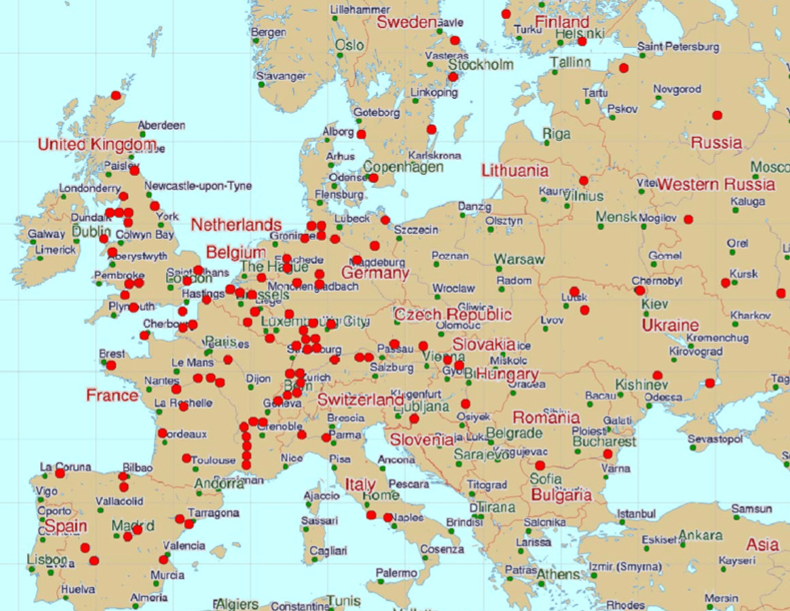Just as in the U.S. many Europeans consider nuclear power as a clean energy source. Some are going so far as to include it as a “green energy” source.
France is Europe’s leading country in support of nuclear power; and they are now considering a law to speed up construction for new reactors. In pursuit of energy independence, President Emmanuel Macron’s recently said that modernization is essential to meeting their independence goals. They have a bill meant to streamline the process of approving and building new plants and moves to reverse Macron’s predecessor’s commitment to cap nuclear power at 50%.
Other European countries are not onboard with a nuclear revival, such as Austria, Germany, Luxembourg, and Portugal. One-third of Europe’s 103 operating nuclear power plants, located in 13 of their 27 member states, are scheduled for closure in 2025. These nuclear plants provide 25% of Europe’s electricity and half of that power comes from the nuclear plants in France. Germany, as has been well publicized, just shut down their last three operating reactors and have had to rely on coal-fired and natural gas-fired plants to fill the electricity gap since the renewable sources weren’t capable of meeting their needs.
With that said, Denmark’s Parliament recently discussed a proposal to establish an independent commission to investigate if nuclear should be considered as part of their energy mix. Surprisingly their environmental party and their social-liberal party both supported the proposal with the goal of attaining more knowledge about nuclear power for Denmark.
Italy also decided to revisit consideration of nuclear. Their Parliament committed the executive to “consider including nuclear power” among their clean energy sources, and the government signaled it’s ready to work towards that goal. Just after the Chernobyl disaster in 1987, parliament elected to phase out all nuclear power plants. Then in 2011, the government attempted to usher in a nuclear program for power generation purposes, but it was shutdown in response to the Fukushima Event. Today, Italy is leaning toward nuclear once again, as the Lower House of Parliament passed two motions geared at countering the country’s historical anti-nuclear stance.
These countries may soon join with Belgium, Bulgaria, Czech Republic, Finland, France, Hungary, Netherlands, Romania, Slovakia, Slovenia, Spain, Sweden, and the United Kingdom as countries that embrace nuclear power.

Image credit: Safety and Reliability NPP Short, Juraj Kralik.



